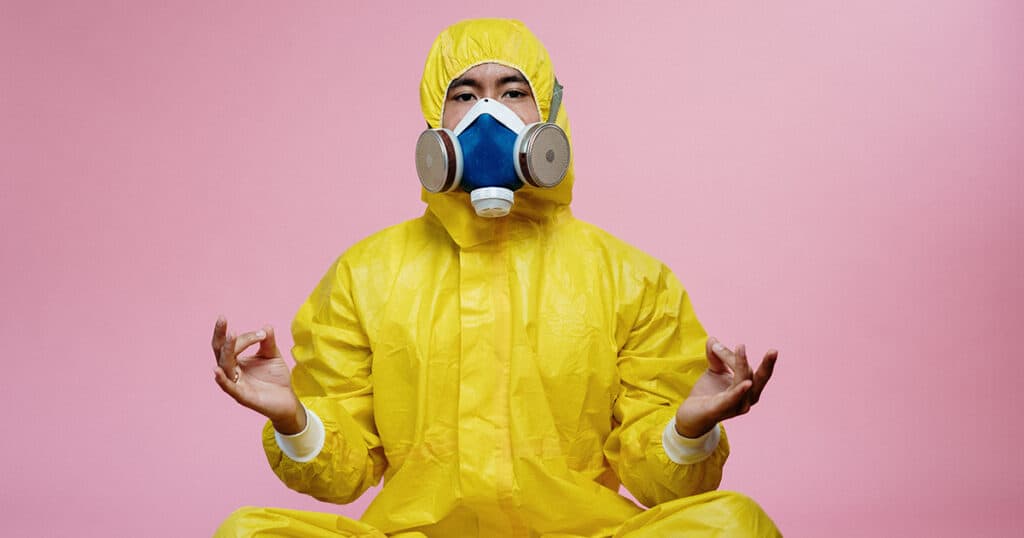
Confession: I have never considered myself a lifestyle medicine doctor. In all honesty, I think the name “lifestyle medicine” sounds a bit ambiguous; certainly not very academic. But I do acknowledge the importance of how lifestyle factors like nutrition and exercise influence chronic disease. I bet that all medical doctors would agree with that. Having pivoted my career, somewhat surprisingly, from traditional gynecology to the practice of integrative medicine, I find myself a huge champion of all things lifestyle. In fact, I tell my patients that the pillars of health consist of five entities: food, sleep, movement, stress management, and social connection.
Back in March I was a panelist on the Coping with Coronavirus Crisis: Expert Series. In that talk I presented natural ways to support your immune system in order to prevent getting the COVID-19 infection. Lifestyle factors play a huge role in the immune system which influence not just chronic disease, but also acute illnesses. As I looked over my talk, I realized what I was actually doing was making the case for lifestyle medicine. So what does that look like?
Sound nutrition and regular physical activity are widely accepted as important for health, so I won’t focus on them here. I will mention though, that one of the top risk factors for COVID-19 illness has turned out to be obesity, a chronic illness best addressed with food and exercise. But for the purposes of this blog, I want to focus on some of the “softer” factors that can influence health: sleep, stress, joy. How important are they? Well, I dove into the research to find out.
There’s a very prolific researcher named Dr. Sheldon Cohen who beautifully demonstrates how the immune system responds to various physical and emotional stressors. Cohen has published nearly 500 articles in his 40+ year career. He’s carried out numerous experiments where volunteers live in his research facility for several weeks, all experiencing the same food and living conditions. While there, he infects them with viruses like coronavirus (yes, the same kind of virus as COVID-19 and the common cold), respiratory syncytial virus, rhinovirus, etc. Then he monitors them over time to see who actually gets sick (not everyone does). Some of the studies look at subjective symptoms, others look at blood samples that detect actual changes in the immune system. Over and over again he demonstrates how the immune system responds to stress. Here are just a few examples of his findings:
Sleep
- People with less than 7 hours of sleep were almost 3 times as likely to get cold symptoms compared to people who slept more than 8 hours at night.
- People who had a harder time staying asleep were 5.5 times more likely to get a cold than people who slept consistently through the night.
Stress
- People who had higher scores on stress questionnaires were more likely to get sick than those with less stress in their lives.
- People with higher levels of the stress hormone, cortisol, were more likely to get sick and also more likely to be infectious themselves.
Joy
- Subjects who had a more positive emotional outlook on questionnaires were also were less likely to get sick. These people used words like “happy, pleased, relaxed” in contrast with people who described themselves as “anxious, hostile, depressed.”
Social Connections
- People with fewer social ties were more likely to get sick compared to people who had more social contacts.
The way we lead our lives truly impacts our health and our body’s ability to weather the stressors that life brings. In this crucial moment of the COVID-19 pandemic, we need lifestyle medicine more than ever. Researchers are racing to develop medicines and vaccines, but we don’t have them yet. Indeed, we may never find that magic bullet. What we do have is our own innate ability to strengthen our immune system and ensure vitality and longevity with how we live our lives from day to day.
What can you do right now to improve your health?
- Eat real food: vegetables, fruits, eggs, nuts, meat and fish (if you desire)
- Say “no” to processed foods with artificial ingredients and added sugar
- Get at least 8 hours of sleep a night
- Take a walk outside for 30 minutes a day if possible
- Several times a week do something that raises your heart rate and makes you sweat
- Use meditation or prayer to calm your mind daily
- Stay connected with friends and family through phone calls, video calls
- Get involved with your community, reach out to your neighbors (in a safe, socially-distanced way)
- Find a hobby or practice that brings you joy and do it as often as you can
- Seek out something to make you laugh on a daily basis
Our vitality and resilience come from what we eat, how we sleep, how we love, how we move our bodies, and how we manage and react to the normal stressors of everyday life. I hope you find this insight exciting and empowering during these somewhat uncertain times.
Dr. Bronwyn Fitz is double board certified in Obstetrics and Gynecology and Integrative Medicine. To learn more about her practice or how to be come a patient, call 203-900-4194 to schedule a free 15-minute Consultation.
